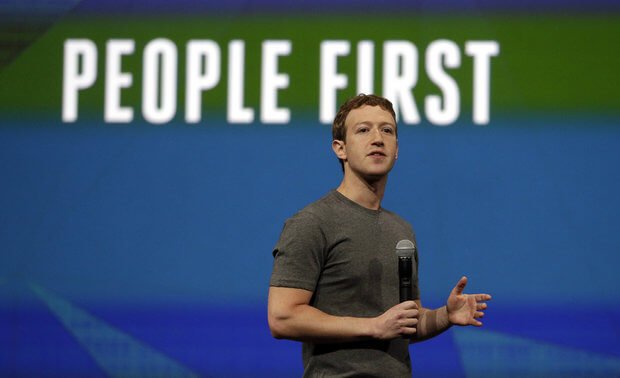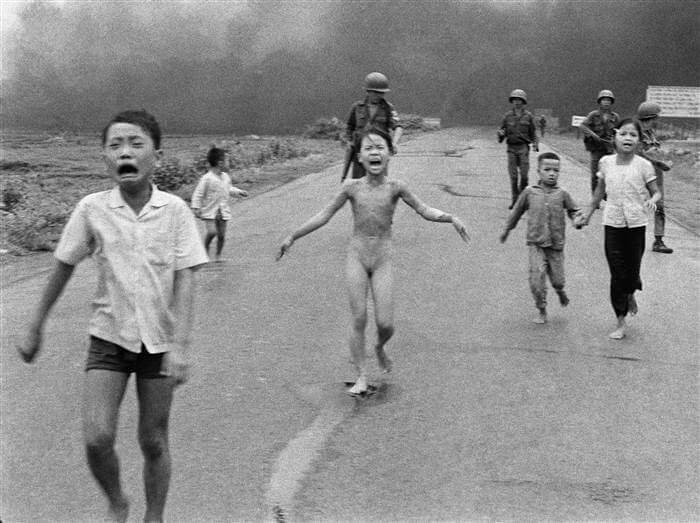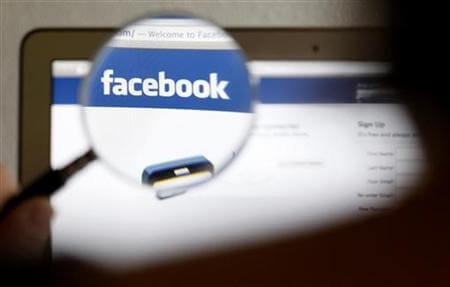Facebook owner Mark Zuckerberg has just landed himself in the eye of a storm after he had the iconic photograph of the ‘Napalm Girl’, a harrowing reminder of the American offensive in Vietnam, deleted from Facebook.

In the photograph, called ‘The Terrors of War’ taken by Nick Ut, there are several children crying and fleeing the spot after a napalm-bomb attack in Vietnam, a particularly vicious but popular means of warfare at the time. In the photograph, a 9 year-old-girl is seen running naked away from what seems like a bombing site.
The photograph became a symbol of the atrocities committed during the Vietnam War, and the price that was paid in blood and tears by an entire generation of Vietnamese men, women and children. Many claim that the picture hastened the end of the war by bringing public attention to the absolute horrors innocent people, especially children, were exposed to during the war.

The controversy started when Facebook deleted a post by Norwegian writer Tom Egeland, that included the picture in question, claiming :
“Any photographs of people displaying fully nude genitalia or buttocks, or fully nude female breast, will be removed,” the notice from Facebook explained.
The censorship provoked a strong reaction with Norway’s leading newspaper, Aftenposten, publishing a front page open letter addressed to Zuckerberg, writing:
“I am upset, disappointed — well, in fact even afraid — of what you are about to do to a mainstay of our democratic society,”
Accusing Zuckerberg of abusing his immense power as the head of Facebook, the editor, Espen Egil Hansen wrote:
“I am worried that the world’s most important medium is limiting freedom instead of trying to extend it, and that this occasionally happens in an authoritarian way,” he added.
Egeland’s post, for which he was suspended from Facebook, was on historic photographs of war. Critics argue that removing ‘The Terror of War’, the Pulitzer Award-winning picture of the naked Kim Phuc, running and crying as her home is bombed, is not pornographic or offensive. It is a documentary evidence of a war, and should be treated as such, without adding the color of ‘morality’ to it.
Referring to Zuckerberg’s recent decision to replace the editorial team in charge of managing the ‘trending topics’ bar on Facebook with a digital algorithm, Hansen tells Zuckerberg:
“This right and duty, which all editors in the world have, should not be undermined by algorithms encoded in your office in California.”

Algorithms do not have the editorial judgement that is required to publish certain stories, a fact that was evident when, in several instances, fake news stories managed to pass through the algorithm, and were, in fact, even promoted by it.
This is not the first time Facebook has deleted posts it deemed ‘unsuitable’ or offensive. The company got in trouble earlier this year when the picture of Tess Holliday, a plus sized model in a bikini, (as part of a campaign for promoting an event on body image and feminine beauty standards called Cherchez La Femme: Feminism and Fat ), was taken off the site, citing that the picture would make women ‘feel bad’. After intense criticism for the move, Facebook apologised for its senseless censorship.

After the criticisms started pouring in, Facebook sent an official statement to a query by The Guardian, saying:
“While we recognize that this photo is iconic, it’s difficult to create a distinction between allowing a photograph of a nude child in one instance and not others,”
The statement makes very little sense in the present context, as the content in question is an award-winning photograph that captures one of the most historic moments of our recent past. In this regard, most art would end up (as has been) being labelled vulgar and offensive, because there is bound to be a section in the world’s population, that takes offence.
It seems Facebook’s censorship laws need to be tweaked a bit to complement free speech, the tenet upon which the entire media industry is based. The conundrum is succinctly captured in Hansel’s question to Zuckerberg:
“Mark, please try to envision a new war where children will be the victims of barrel bombs or nerve gas. Would you once again intercept the documentation of cruelties, just because a tiny minority might possibly be offended by images of naked children, or because a paedophile person somewhere might see the picture as pornography?”
To read the full letter, click here.

















